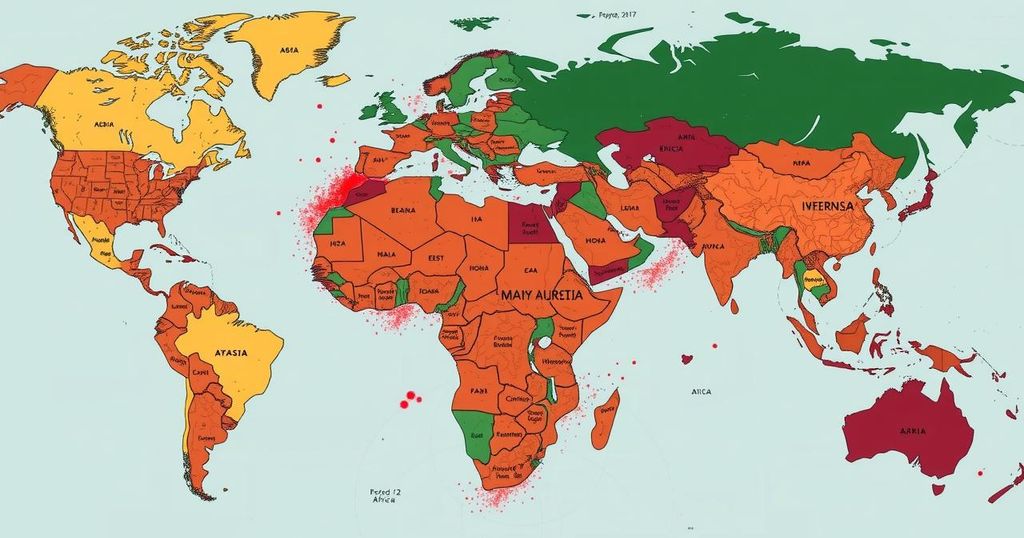In 2024, several African nations held elections yielding varied outcomes, with ruling parties in some countries retaining power, while others faced significant defeats. Key events included the election of new opposition leadership in Botswana, continued rule in Mozambique and Comoros despite unrest, and a coalition government in South Africa. The electoral landscape illustrated the complexities of African democracy and governance amid rising challenges in the politically tumultuous Sahel region.
In 2024, several African nations held presidential, parliamentary, or local elections, producing a mixed bag of outcomes. Notably, while certain long-standing ruling parties successfully retained power, others faced unexpected and significant defeats. In the Comoros, incumbent Azali Assoumani, who has ruled since 1999, secured a fourth term amidst violent protests from the opposition, which rejected the election results. Mozambique witnessed the Frelimo party maintain its near half-century governance, although the opposition leader’s claims of electoral fraud instigated civil unrest.
Namibia’s SWAPO party preserved its longstanding rule, making history by electing Netumbo Nandi-Ndaitwah as its first female president, although accusations of electoral irregularities marred the process. In a significant shift, Botswana elected its first opposition leader in nearly sixty years, marking a departure from a prolonged single-party rule. South Africa’s historical African National Congress (ANC), now in power since the end of apartheid, could not secure an outright majority, marking a pivotal change towards coalition governance that reflected public dissatisfaction with service delivery and accountability.
The East African landscape saw President Paul Kagame of Rwanda secure a near-universal approval rate, generating debate over the legitimacy of such overwhelming support amid ongoing concerns regarding political freedoms and opposition suppression. Meanwhile, West Africa showcased notable electoral outcomes; John Mahama’s return to power in Ghana, fueled by concerns over the economy, was coupled with Senegal electing its youngest president, Bassirou Diomaye Faye, who pledged to address corruption and unification after a politically charged election cycle.
While some nations embraced democratic processes, the Sahel region remained troubled with postponed elections and military rule, highlighting a contrast between the democratic ambitions of some countries and the consolidation of power by military juntas in others. With restrictions on media freedoms on the rise, the situation underscores the complex and evolving nature of political governance in Africa today.
The 2024 elections in Africa encompassed a diverse array of results, reflecting the continent’s intricate political landscape. A considerable number of nations engaged in electoral processes amid varying degrees of stability and governance. In countries like Mozambique and Comoros, long-standing parties faced resistance and accusations of electoral misconduct, prompting civil unrest. Conversely, nations such as Botswana and Ghana displayed a shift toward political change, capturing the attention of the international community as they navigate their democratic trajectories. The contrasting circumstances of the Sahel region, where elections were delayed due to military intervention, underline the tension between aspirations for democracy and authoritarian governance.
The 2024 African elections presented a complex tapestry of political developments. While some ruling parties reaffirmed their dominance amid claims of misconduct, significant losses for others signified a potential shift in public sentiment. The emergence of new leadership in Botswana and Ghana, alongside ongoing challenges in the Sahel, highlights the continent’s evolving political landscape. This juxtaposition illustrates the diverse experiences of democracy across Africa, marked by both advancement and setbacks in governance and civil liberties.
Original Source: www.voanews.com






